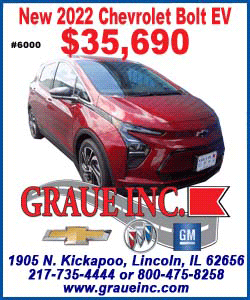|
Op-Ed:
Road-funding accountability lags as Illinois gas tax increases yet again
[The Center Square] Adam Schuster |
Illinois Policy Institute
Springfield lawmakers
doubled Illinoisí gas tax Ė from 19 cents per gallon to 38 cents per
gallon Ė two years ago. On July 1, the gas tax will go up again, thanks
to the automatic annual increases lawmakers included in the tax hike
law. But even as Illinois drivers continue to pay more, Illinois
taxpayers arenít getting the best bang for their buck on the
infrastructure projects their gas taxes fund. |
|
 The state has not followed through on promises to deliver more
accountability and transparency surrounding how the state invests infrastructure
dollars. That needs to change, and legislation awaiting Gov. J.B. Pritzkerís
signature would be a good first step. The state has not followed through on promises to deliver more
accountability and transparency surrounding how the state invests infrastructure
dollars. That needs to change, and legislation awaiting Gov. J.B. Pritzkerís
signature would be a good first step.
Illinois families already pay the nationís third-highest gas
taxes overall, behind only California and Pennsylvania. The latest gas tax
increase could have Illinoisans paying as much as 43.5 cents per gallon in state
excise tax by 2025, and itís already adding up for drivers. Institute research
shows the gas tax hike will cost the average driver an extra $100 this year
alone.
Combined with sales taxes, federal taxes and other state and local fees, the
average Chicago driver pays nearly a third of their total price at the pump in
taxes alone.
The original 19-cent spike in the gas tax and the automatic annual increases
since then were sold to Illinoisans as necessary. It was just one of 20 tax and
fee hikes passed during Pritzkerís first term and among the 14
infrastructure-related tax hikes politicians said were needed to help repair
crumbling roads and bridges. On top of higher gas taxes to fund new capital
projects, drivers were hit with higher costs for parking, vehicle registration
and more.

But the state continues to spend millions on pork-barrel projects, including $98
million for noise abatement in a suburban part of former House Speaker Mike
Madiganís district, $50 million on recreational grants for things like new
pickleball courts, and $5.2 million for playground upgrades. An Illinois Policy
Institute analysis identified more than $1.4 billion of waste and pork in
Pritzkerís capital plan.
Some of these projects might be defensible in a state with a balanced budget and
a revenue surplus, but Illinois is a fiscal basket case with little room for
waste. Illinois has the second largest debt burden of any state compared to the
size of its economy and among the nationís highest taxes already. Rather than
asking how we can dip further into taxpayer pockets, we should be looking for
ways to use the revenue we have more efficiently.
That could happen if Pritzker follows through on a bill state
lawmakers sent to his desk in May.
[to top of second column] |

House Bill 253 would direct transportation
officials to create a performance-based framework for choosing where
and how to spend infrastructure funds.
Under the bill, officials would look at key indicators of value like
congestion mitigation and economic development when deciding which
infrastructure projects to fund first. Tax dollars would go to the
projects that benefit taxpayers most, rather than costly, but
high-profile projects that get politicians the most attention from
voters.
The system is similar to the ďSMART SCALEĒ program
used for selecting infrastructure projects in Virginia Ė and it
works. Officials in Virginia credit the stateís SMART SCALE with
reducing the cost of infrastructure projects overall and improving
the public benefits of infrastructure spending as it happens.
State lawmakers canít ask Illinoisans to pay some of the nationís
highest taxes on gas and then turn around and mismanage the money.
Research shows that thereís no link between higher gas taxes and
better infrastructure in U.S states. Allocating transportation taxes
more wisely, with a focus on return on investment to drivers, will
offer more benefit to the public than any of Pritzkerís 20 tax
hikes.
And if Illinois is going to take seriously the idea that it can
improve roads and bridges by spending smarter, rather than just
spending more, lawmakers should put an end to automatic July 1 gas
tax hikes without a vote. If politicians want more of driversí
money, they should first have to make the case for why itís
necessary. They should have to defend votes in favor of higher gas
taxes at the ballot box.
As long as transportation officials can count on a
one-way ratchet of higher taxes each July, theyíll lack an incentive
to think outside the box on infrastructure funding. But a basic
first step would be to ensure Illinoisans benefit from the projects
we do select. Pritzker should sign HB 253 to make that a reality.
Adam Schuster is the senior director of budget and
tax research at the Illinois Policy Institute.
 |